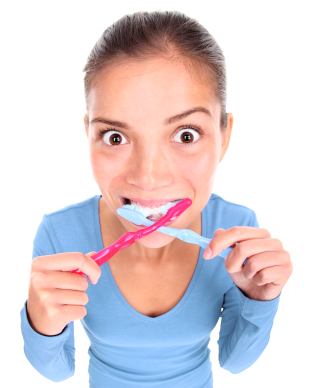With the holiday season underway many of you have probably already started your shopping for family and friends, but often the hardest part is figuring out what to get that hard-to-shop-for man on your list. Whether it’s your brother, father, husband or boyfriend we all know a guy that’s hard to shop for!
This year we have compiled a top 10 gifts list to suit all budgets for the well groomed man (or for a man on your list that you wish was well groomed).
1. Menscience Advanced Deodorant $17
If the man on your list is sporty or enjoys the outdoors this is the perfect stocking stuffer!
This advanced deodorant is used by professional athletes and has been featured in Men’s Health Magazine. Amongst the many benefits, your guy will enjoy long lasting odor elimination from this non-irritating formula developed from tea extract and witch hazel. As an added bonus, it doesn’t stain or leave a residue on shirt underarms!
2. The Body Shop Hemp Hand Protector $18.50
Between hanging Christmas lights, shoveling snow, scraping ice off of car windshields and everything else men do outdoors around the holidays, their hands can get pretty chapped.
The Body Shop’s Hemp Hand Protector is great for dry skin. The hemp and organic beeswax formula helps lock in moisture, even through hand washing and cold winter temperatures. The fatty acids in hemp seed oil are the key to repairing skin and restoring smoothness.
3. Philip B Styling Gel $19 (6oz)
In the cold weather and wind of winter it’s easy to end up with a "bedhead" look without trying. Help your guy out this season by giving him the prefect hair product to tame his locks!
4. Hammacher Schlemmer’s The Best Nose Hair Trimmer $19.95
If the man on your list is getting a little older he may be starting to notice ear and nose hairs peeking out. Give him the best nose hair trimmer- literally.
The Best Nose Hair Trimmer by Hammacher Schlemmer was specially designed to cut hair follicles closer and faster while providing exceptional comfort. The size and shape allow for better trimming without pulling, resulting in less tickling while trimming and reduced skin irritation after.
5. BreathGemz Dual Action Breath Freshener $20
Even if your guy already has great breath giving him BreathGemz will just make his breath even better and give him the added pleasure of a clean minty mouth like he just came from the dentist.
BreathGemz Dual Action Breath Fresheners are more than just a bad breath pill. these tablets neutralize food odors instantly while also providing a fresh feeling in the mouth. Each BreathGemz capsule has a liquid core of parsley seed oil and sunflower oil, and is encased in a minty fresh coating for the most effective breath freshening available. BreathGemz are even effective against smokers’ breath.
6. F/P Homme Shower Gel Trio $22
Even well groomed men don’t like to have really complicated personal hygiene regimens. Make looking and feeling good easy on your guy this season with the F/P Homme Shower Gel Trio. F/P Numero 001, Numero 002, and Numero 003 shower gels can also be used as shampoo and offer separate masculine fragrances that can be mixed and matched according to individual preference. Whether it’s the fresh citrus Numero 001, woody sandalwood Numero 002 or spicy vetiver Numero 003, the guy on your list is sure to love this manly trio.
7. Moustache Wax Action Pack $26
If you need a gift for a man with a mustache or beard the Moustache Wax Action Pack from the Etsy store MansFaceStuff is the gift for you!
Packaged in travel-friendly one ounce tins, moustache wax is an innovative and fun gift to give your facial hair aficionado. The Action Pack comes with three varieties of handmade wax: Gin & Tonic, Red Hot, and All Nighter. This wax will help keep stray hairs in check and faces smelling great!
8. Aramis Pre Electric Lotion £22.50 (about $35.15)
If the man on your shopping list uses an electric razor chances are he’s gotten some useless gift before like a shave cream warmer or razor blade sharpener, but now there’s finally the perfect gift for men that use electric razors.
Aramis Pre Electric Lotion is specially formulated to prepare your skin for the close shave of an electric razor. Bergamot, cumin, jasmine, patchouli, amber and musk combine to create a spicy leather-like scent while refreshing skin and minimizing nicks and scrapes that can occur during shaving.
9. Opalescence trèsWhite Teeth Whitening Kit $85
For whatever reason most men hate making regular appointments for the doctor and dentist. If you guy’s teeth could use to be a little whiter the Opalescence trèsWhite Teeth Whitening Kit is the perfect gift.
Unlike those wimpy strips that stick on your teeth and never work, the Opalescence trèsWhite Teeth Whitening Kit is a superior teeth whitening system that produces results after the very first treatment. This kit is not available in retail stores; you can only order it from a dentist’s office, because it has a higher hydrogen peroxide concentration than your average over-the-counter whitening product. After about a week of treatment (30-60 minutes per day) your guy’s teeth will be noticeably whiter and will only require touch ups every 1-2 years, if at all.
10. Sephora Collector's Edition Fragrance Sampler For Him $155 value (now $75)
Still don’t know what to get the man on your list? Sephora has put together a fragrance sampler so your man can try some of today’s most popular fragrances in the comfort of his own home. The best part is that after deciding which fragrance he likes best, he can take the voucher included in the set (or send you with the voucher) to your local Sephora and redeem it for a fragrance. The best part about this gift is that he won’t have to pretend he likes his gift because he gets to pick it out himself!
About the Author: Dr. Dailley has been practicing dentistry since 1981 and specializes in bad breath treatment and remedies. He has a degree in Cell & Molecular Biology from San Francisco State University and a dental degree from the University of the Pacific School of Dentistry. Dr Dailley founded the Center for Breath Treatment in the bay area and currently conducts research on curing halitosis at the California Pacific Lab facility in Novato California.















